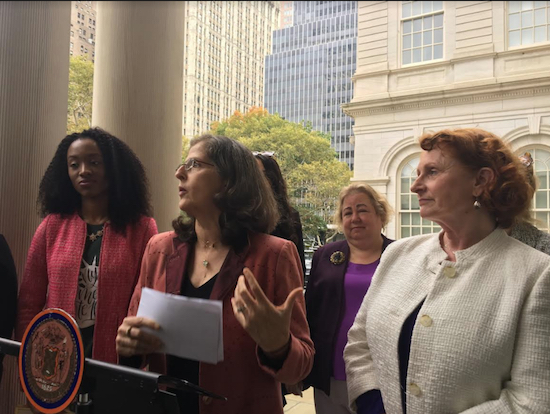Women’s rights advocates hail passage of anti-harassment bills

Women’s rights advocates said they have high hopes that a full crackdown on sexual harassment in workplaces in New York City will begin once a package of bills passed by the City Council are signed into law by Mayor Bill de Blasio.
“Real change begins with policies and laws. This is a workplace issue and a safety issue. This is not just a woman’s issue. Creating laws that protect us rather than accuse — or worse, ignore — will help to change the paradigm,” Kim Sykes, artistic director of the group Girl Be Heard, said in a statement following the Council’s passage of the Stop Sexual Harassment in NYC Act on April 11.
The act contains 11 different bills aimed at educating workers on their rights and shedding light on the number of sexual harassment incidents taking place in government offices and private companies.
